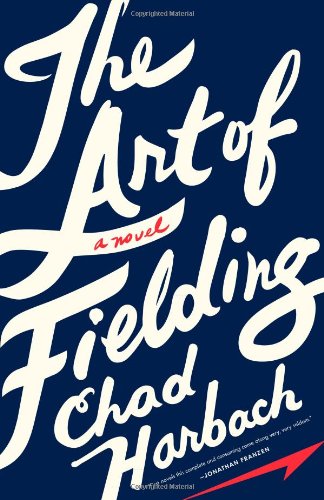★★★★★ // ★★★★★
♫♫♫♫♫ // ♫♫♫♫♫
[13 hours 19 mins]
The circus arrives without warning. No announcements precede it. It is simply there, when yesterday it was not. Within the black-and-white striped canvas tents is an utterly unique experience full of breathtaking amazements. It is called Le Cirque des Rêves, and it is only open at night.
The circus arrives without warning. No announcements precede it. It is simply there, when yesterday it was not. Within the black-and-white striped canvas tents is an utterly unique experience full of breathtaking amazements. It is called Le Cirque des Rêves, and it is only open at night.
Don't read any more summary than that. Just jump in to the mysterious world of Le Cirque des Rêves.
Like many books I choose to read, I did not investigate the plot of this at all prior to reading it. I didn't even read the book jacket summary. I like to go into books with a clear, open mind. I added it to my library queue after it made Amazon's Best of 2011 list.
I'm not going to go into plot summary because I believe books are best enjoyed unspoiled. But when I finished this book, I had goosebumps and an inexplicable sense of loss and longing and also amazement at how beautiful it all was. Morgenstern made The Night Circus alive, focusing at times on each of the senses. She created a magical world, in whose depth and mystery rivals the feeling Hogwarts gave me as a child, a desire to inhabit the book ever after I had finished it, just to get those magical feelings back.
I read some reviews on GoodReads where readers hated The Night Circus because it was "too descriptive." But personally, I love books (and especially audiobooks) that use descriptive language to access the senses, the way these books envelop the readers, bringing them in. It is the mark of a skilled and thoughtful writer to manipulate her language to fit the needs of the story. If that doesn't sound like your thing, I would suggest you stick to the realm of popular and genre fiction.
Morgenstern has definitely made my list as a writer to follow up on after this amazing debut novel, especially after I discovered that she drafted it as part of National Novel Writing Month.
In terms of listening to this novel, I suggest you pay some attention to the dates. Chapters are from the perspectives of multiple characters and they are given out of chronological order. Once you get the hang of this, it is not too hard to follow. Jim Dale, known to many as the voice of the US version Harry Potter audiobooks, was the perfect selection to read The Night Circus. As far as audiobook readers go, he is one of the greats, if not the great. I'll be surprised if he doesn't win some award for this performance. Here's an excerpt from his Wikipedia page:
He has recorded all seven books in the Harry Potter series, and as a narrator he has won two Grammy Awards, seven Grammy Nominations and a record ten Audie Awards including "Audio Book of the Year 2004," "Best Children's Narrator 2001/2005/2007/2008," "Best Children's Audio Book 2005," two Benjamin Franklin Awards from the Independent Book Publishers Association (one of these was in 2001 for Harry Potter & the Prisoner of Azkaban). and twenty three Audio File Earphone Awards. He is also the narrator for the Harry Potter video games, and for many of the interactive "extras" on the Harry Potter DVD releases. He also holds two Guinness World Records: one for having created and recorded 146 different character voices for one audiobook, Harry Potter and the Deathly Hallows, and one for occupying the first six places in the Top Ten Audio Books of America and Canada 2005.
Recommended for: general readers not put off by magical realism, fans of Neil Gaiman, fans of Harry Potter



